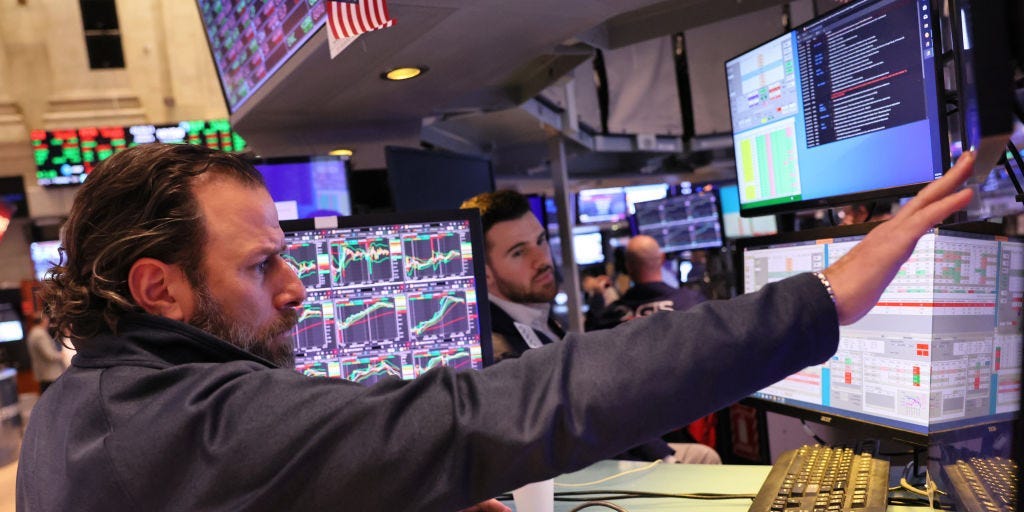Sell the S&P 500 when it rises above 4,200, Bank of America’s chief stock strategist said Friday. “We stay bearish” as the US economy looks set to end 2023 with stress in the labor market and weak earnings. The S&P 500 was edging toward logging a 20% gain from its bear-market low. Loading Something is loading.
Thanks for signing up!
Access your favorite topics in a personalized feed while you’re on the go.
The S&P 500 is edging close to a threshold that widely defines a bull market, but investors should consider ditching the large-cap stocks index at a key level as risk of an economic downturn looms, says Bank of America.
“We stay bearish as economic ambiguity of 2023 set to end with crack in labor market & EPS recession,” Michael Hartnett, chief investment strategist at Bank of America Global Research, said in note published Friday.
He reiterated his call to sell the S&P 500 above 4,200 — less than 0.1% from the current level — in part as stocks are pricing in a decline of “just” 4% in per-share corporate earnings.
The S&P 500 has marched up 18% from October’s bear-market low, and a rise of 20% from a recent low is widely considered to mark the start of a bull market.
Stocks have found upside support from corporate profit reports as the first-quarter earnings season started strongly relative to the previous two quarters, FactSet said last week. It said 76% of S&P 500 companies that posted results had outstripped Wall Street’s targets.
But in Friday’s “Flow Show” note, Hartnett said risks of “hard landing for EPS/no landing for interest rates remain high,” while upside from a soft-landing scenario would hinge on a “dramatic fall” in wage inflation.
Data on Friday backed up the view that the Fed may have to keep rates higher for longer and dashed hopes that inflation will slow down precipitously anytime soon.
Wages rose 1.2% in the first quarter, slightly higher than 1.1% in the previous quarter, according to a data released Friday by the Labor Department.
Separately, the Fed’s preferred measure of inflation released Friday showed underlying core inflation rising 0.3% in March from the previous month. The core PCE index rose 4.6% from a year ago. The monthly print met expectations but the year-over-year reading was slightly ahead of an estimated 4.5%.
The Federal Reserve next week is likely to raise interest rates for a 10th consecutive time since March 2022.
